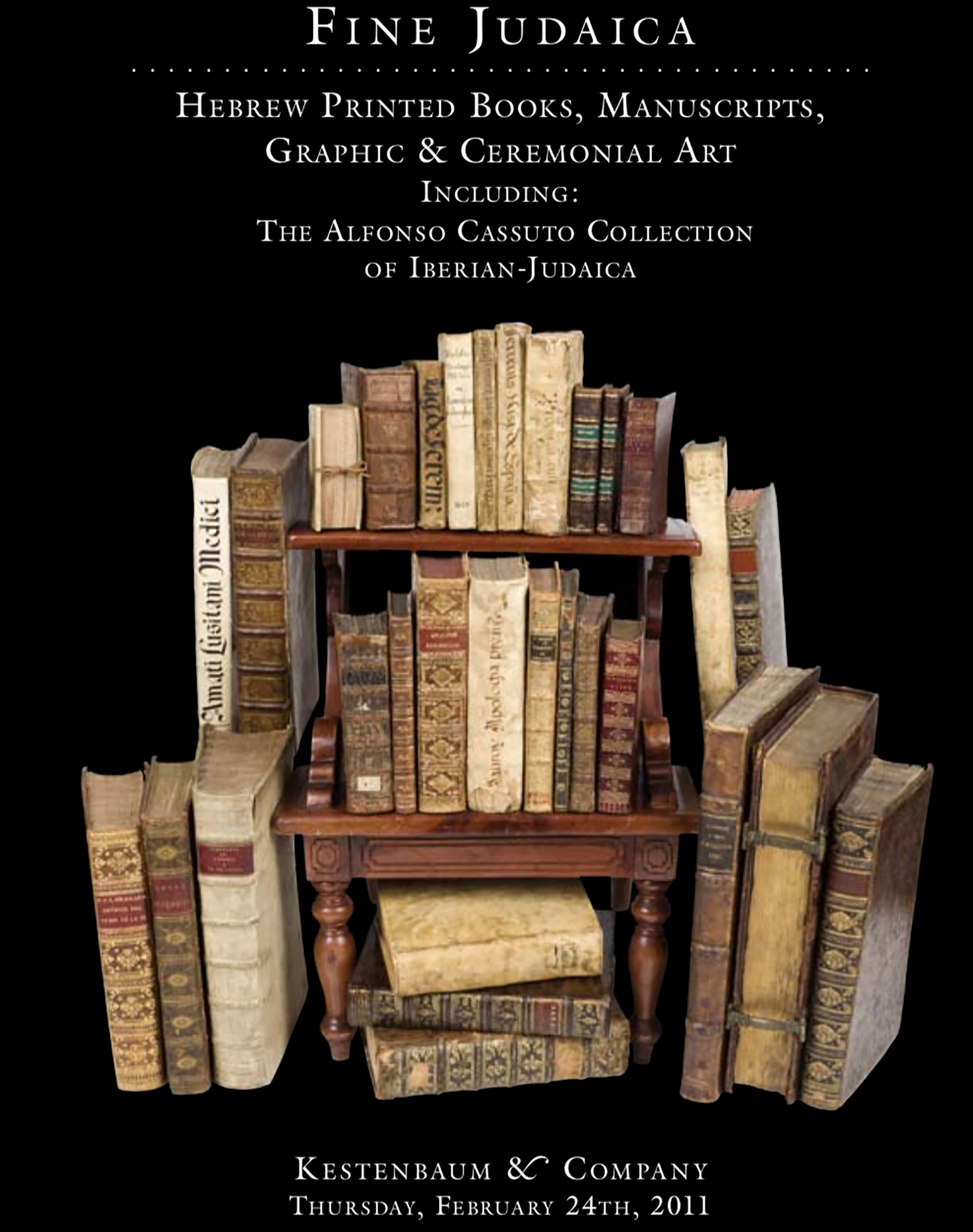Spanish). Godines, Benjamin Senior (Ed.) Me’ah Berachoth / Orden de Bendiciones.

AUCTION 50 |
Thursday, February 24th,
2011 at 1:00
Fine Judaica: Hebrew Printed Books, Manuscripts, Graphic & Ceremonial Art Including: The Alfonso Cassuto Collection of Iberian Art
Lot 311
(LITURGY.
Spanish). Godines, Benjamin Senior (Ed.) Me’ah Berachoth / Orden de Bendiciones.
Amsterdam: Albertus Magnus 1687
Est: $1,500 - $2,500
PRICE REALIZED $2,250
“One Hundred Blessings”: A most striking volume of collected prayers and instructions issued for Marrano refugees. Included in the Me’ah Berachoth are: the Hagadah for Passover; an index of blessings for the entire year including relevant laws and commentary according to Sephardic rite; a perpetual liturgical calendar; a recipe for Charoseth; instructions for constructing a Mikveh; prayers for the sick, last rites, and prayers for martyrs burned at the stake by the Inquisition. Of uncommon interest are the ceremonies celebrating the birth of a daughter, “Zeved HaBath” (Fadas de la Hija) and the circumcision ceremony of proselytes and servants.
The editor writes that he found the manuscript to this work in the library of Isaac de Matitya Aboab and was granted permission by its owner to publish it for the common good. (Although there is some obfuscation, one assumes that Aboab authored the work.) The work received the Haskamah of the three Hahamim of Amsterdam: Isaac de Fonseca Aboab, Jacob Sasportas and Selomoh de Oliveira.
